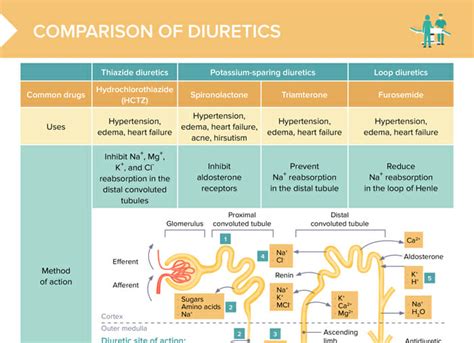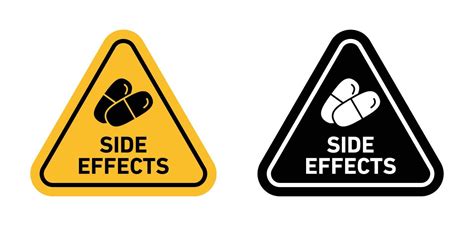Intro
Discover the potential risks of diuretics, including dehydration, electrolyte imbalance, and kidney damage, and learn how to manage diuretics side effects, interactions, and long-term consequences with proper medication and lifestyle adjustments.
Diuretics, commonly known as water pills, are a type of medication that helps the body get rid of excess fluid and salt. They are often prescribed to treat conditions such as high blood pressure, heart failure, and swelling caused by excess fluid in the body. While diuretics can be effective in managing these conditions, they can also cause a range of side effects. In this article, we will delve into the world of diuretics, exploring their importance, benefits, and potential side effects.
Diuretics play a crucial role in maintaining the body's fluid balance. They work by increasing the amount of urine produced by the kidneys, which helps to remove excess fluid and salt from the body. This can be especially beneficial for people with conditions such as high blood pressure, where excess fluid can put extra strain on the heart and blood vessels. However, it is essential to be aware of the potential side effects of diuretics, as they can have a significant impact on a person's quality of life.
The use of diuretics is widespread, and they are often considered a first-line treatment for conditions such as high blood pressure and heart failure. However, their effectiveness can be influenced by various factors, including the type of diuretic used, the dosage, and the individual's overall health. It is crucial to work closely with a healthcare provider to find the right balance and minimize the risk of side effects.
How Diuretics Work

Types of Diuretics
There are several types of diuretics, each with its own unique characteristics and potential side effects. Thiazide diuretics, such as hydrochlorothiazide, are commonly used to treat high blood pressure and are often considered a first-line treatment. Loop diuretics, such as furosemide, are more potent and are often used to treat conditions such as heart failure and pulmonary edema. Potassium-sparing diuretics, such as spironolactone, are used to treat conditions such as heart failure and hypertension, and are often prescribed in combination with other diuretics.Potential Side Effects of Diuretics

Common Side Effects of Diuretics
Some of the most common side effects of diuretics include: * Increased urination * Thirst and dehydration * Dizziness and lightheadedness * Fatigue and weakness * Headaches and muscle cramps * Nausea and vomiting * Diarrhea and constipationLess Common Side Effects of Diuretics

Minimizing the Risk of Side Effects
To minimize the risk of side effects when taking diuretics, it is essential to work closely with a healthcare provider. This can involve: * Regular monitoring of blood pressure and kidney function * Adjusting the dosage and type of diuretic as needed * Staying hydrated and avoiding dehydration * Eating a balanced diet that includes plenty of fruits, vegetables, and whole grains * Avoiding excessive salt and sugar intakeLong-Term Effects of Diuretics

Monitoring and Follow-Up
To minimize the risk of long-term effects, it is essential to work closely with a healthcare provider. This can involve: * Regular monitoring of blood pressure and kidney function * Adjusting the dosage and type of diuretic as needed * Regular check-ups and follow-up appointments * Staying informed and educated about the potential risks and benefits of diureticsSpecial Considerations

Interactions with Other Medications
Diuretics can interact with other medications, including: * Blood thinners, such as warfarin * Diabetes medications, such as metformin * Blood pressure medications, such as beta blockers * Steroids, such as prednisone * Nonsteroidal anti-inflammatory drugs (NSAIDs), such as ibuprofenConclusion and Next Steps

We invite you to share your thoughts and experiences with diuretics in the comments below. Have you or a loved one taken diuretics? What were your experiences? Do you have any questions or concerns about diuretics? Share your story and let's start a conversation.
What are diuretics and how do they work?
+Diuretics are a type of medication that helps the body get rid of excess fluid and salt. They work by increasing the amount of urine produced by the kidneys, which helps to remove excess fluid and salt from the body.
What are the common side effects of diuretics?
+Common side effects of diuretics include increased urination, thirst, and dehydration. Some people may also experience dizziness, lightheadedness, and fatigue.
Can diuretics be used in combination with other medications?
+Yes, diuretics can be used in combination with other medications, but it is essential to work closely with a healthcare provider to minimize the risk of interactions and side effects.
What are the long-term effects of diuretics?
+Long-term use of diuretics can have significant effects on the body, including increased risk of kidney damage, electrolyte imbalances, and osteoporosis.
How can I minimize the risk of side effects when taking diuretics?
+To minimize the risk of side effects, it is essential to work closely with a healthcare provider, stay hydrated, and eat a balanced diet that includes plenty of fruits, vegetables, and whole grains.
